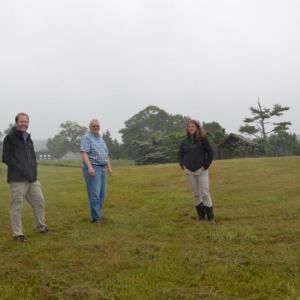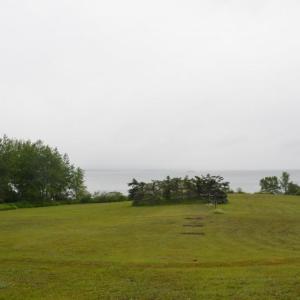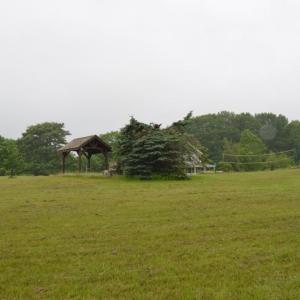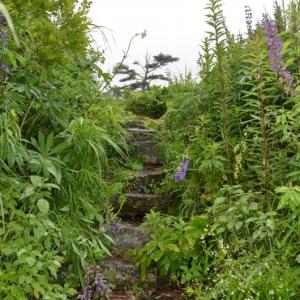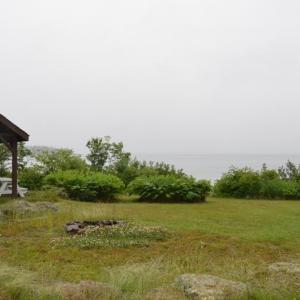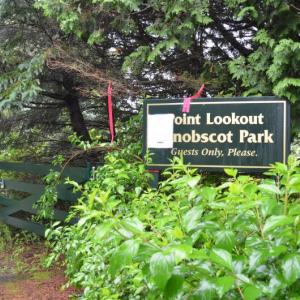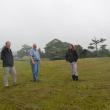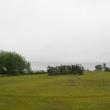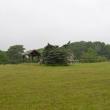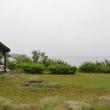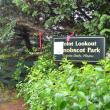Lincolnville voters to consider swapping Ducktrap River land for Penobscot Bay shoreline at July 14 polls
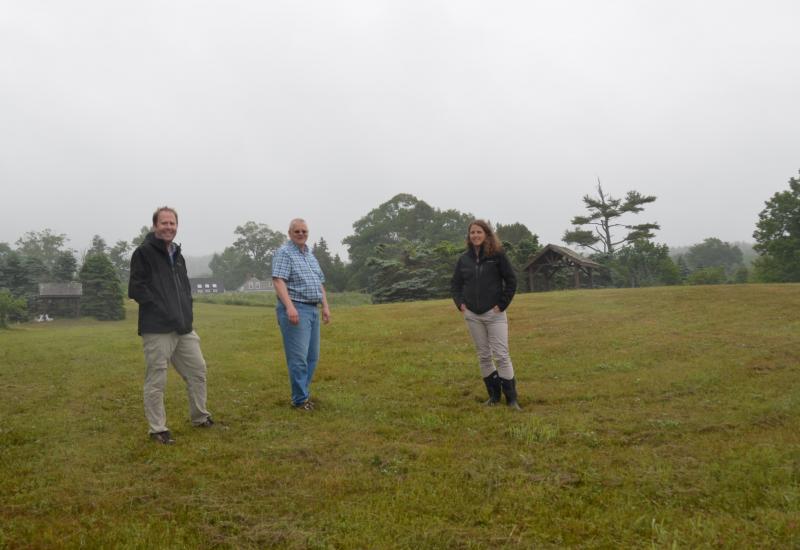 Coastal Mountains Land Trust Director Ian Stewart, Lincolnville Town Manager David Kinney and Land Trust Protection Coordinator Heather Rogers, at the former Point Lookout Penobscot Park, in Lincolnville. (Photo by Lynda Clancy)
Coastal Mountains Land Trust Director Ian Stewart, Lincolnville Town Manager David Kinney and Land Trust Protection Coordinator Heather Rogers, at the former Point Lookout Penobscot Park, in Lincolnville. (Photo by Lynda Clancy)
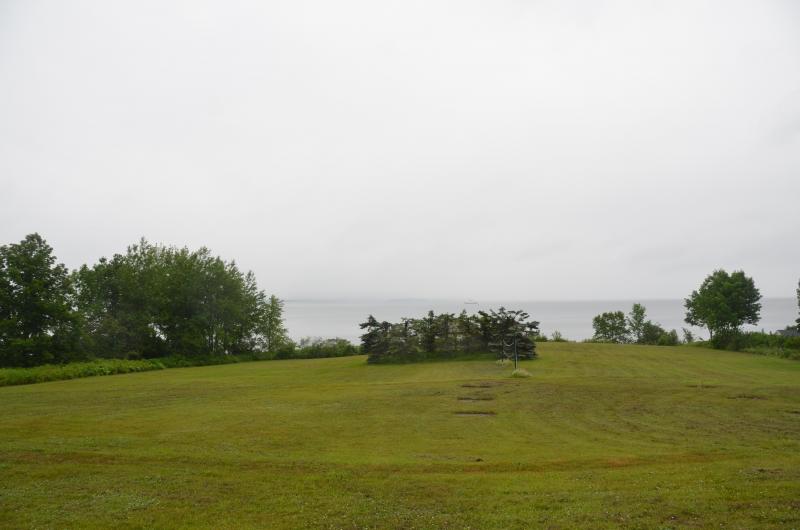 The 4.34 acres spread over former farm meadow land from Route 1 to the cobblestoned shoreline. (Photo by Lynda Clancy)
The 4.34 acres spread over former farm meadow land from Route 1 to the cobblestoned shoreline. (Photo by Lynda Clancy)
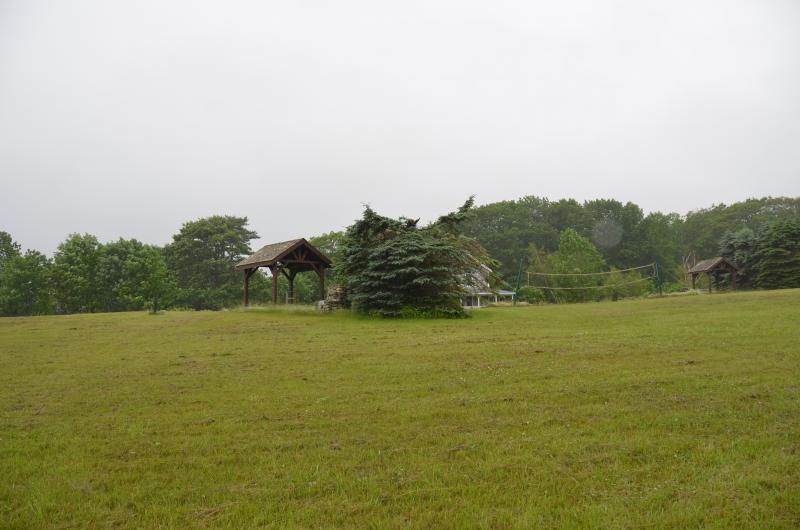
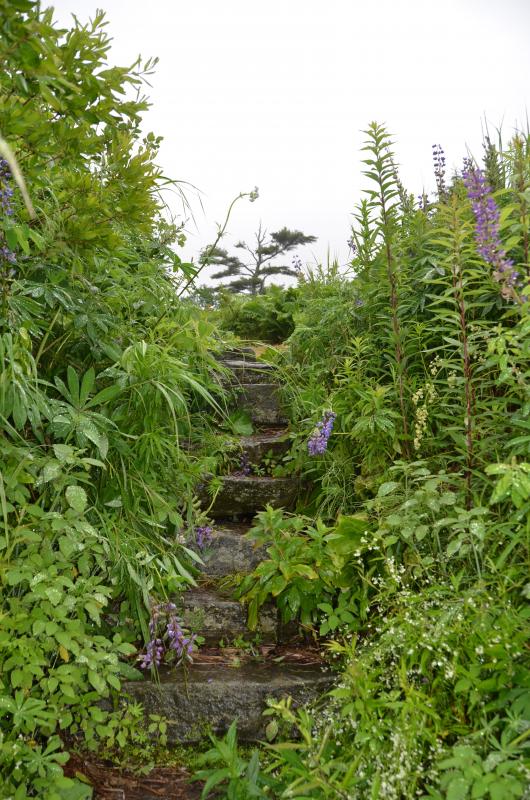 Stone steps lead from the bank to the shore.
Stone steps lead from the bank to the shore.
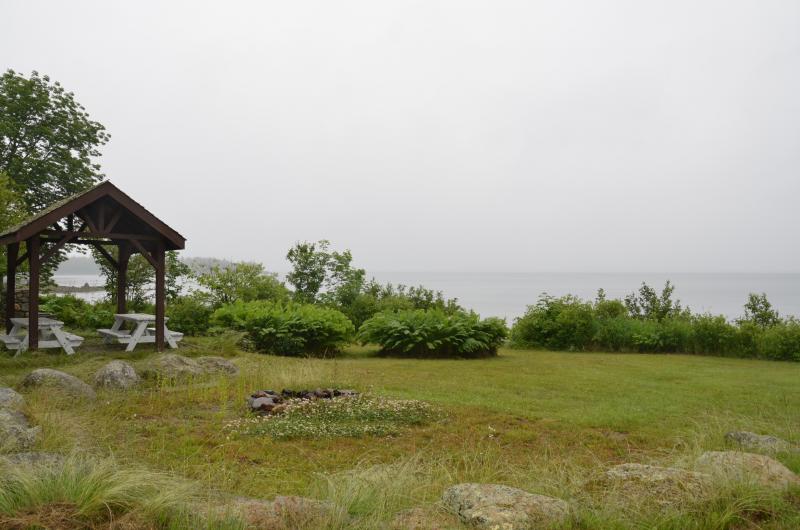
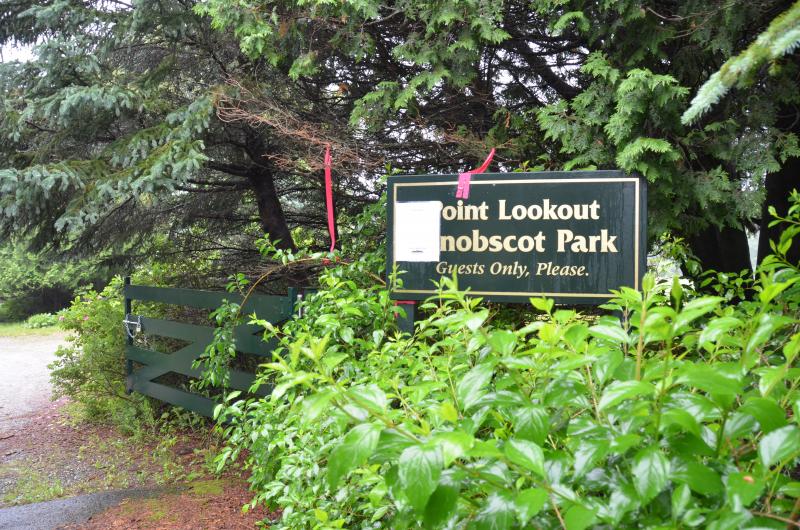
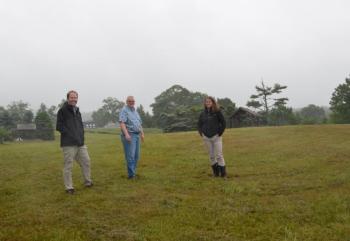 Coastal Mountains Land Trust Director Ian Stewart, Lincolnville Town Manager David Kinney and Land Trust Protection Coordinator Heather Rogers, at the former Point Lookout Penobscot Park, in Lincolnville. (Photo by Lynda Clancy)
Coastal Mountains Land Trust Director Ian Stewart, Lincolnville Town Manager David Kinney and Land Trust Protection Coordinator Heather Rogers, at the former Point Lookout Penobscot Park, in Lincolnville. (Photo by Lynda Clancy)
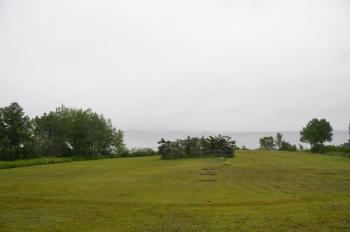 The 4.34 acres spread over former farm meadow land from Route 1 to the cobblestoned shoreline. (Photo by Lynda Clancy)
The 4.34 acres spread over former farm meadow land from Route 1 to the cobblestoned shoreline. (Photo by Lynda Clancy)
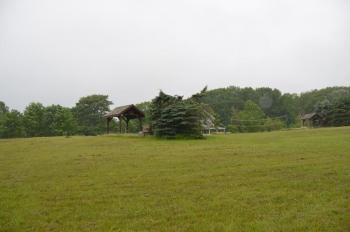
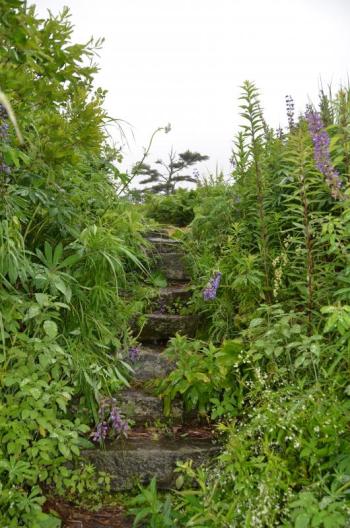 Stone steps lead from the bank to the shore.
Stone steps lead from the bank to the shore.
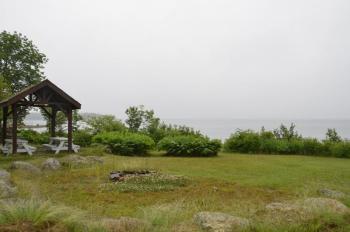
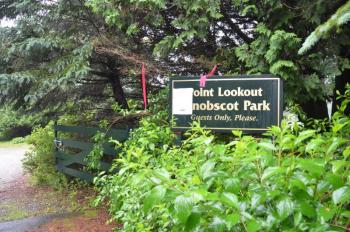
LINCOLNVILLE — Approximately 4.34 acres of prime waterfront land along the west side of Penobscot Bay could fall under public ownership, if voters in Lincolnville agree to a real estate exchange without monetary attachments. Selectmen in Lincolnville unanimously endorsed the idea in April, hoping the townspeople would as well, at the July 14 annual town meeting polls.
The land, former farm meadows that stretch from Route 1 down to 426 feet of shoreline, became an outdoor park for the former MBNA employees, with covered picnic areas, restrooms, fire pits and a few walking trails scattered across it.
Since the MBNA days, the park fell under various owners that acquired the entire MBNA Ducktrap Point Lookout retreat; in March 2020, the current Point Lookout owner, Deep Creek Grazing Association, Inc., donated the land to Coastal Mountains Land Trust.
Coastal Mountains, which has been working for two decades to protect land and habitat on both sides of the Ducktrap River, from Belmont to its outlet in Lincolnville, recognized a strategic opportunity to continue that mission, and offered the town a deal: The land trust would give Lincolnville the deed to the shorefront park, if the town deeded to the land trust its ownership of 68 wooded and undeveloped acreage on the Ducktrap River, a parcel that lies between Route 1 and Route 52.
The parcel, with 3,000 feet of river frontage. is buttressed between two other parcels owned by the Maine Dept. of Inland Fisheries and Wildlife. It is currently assessed at $48,200.
Currently along the river, 84 percent of the setback land is now in permanent conservation, either in the hands of the State of Maine, the land trust, and the town.
Land Trust Director Ian Stewart said the Ducktrap River habitat not only provides sustenance to the wild salmon that periodically swim up it, but to bear, moose and other larger animals.
“The water is a major corridor for wildlife,” he said. “The 5,000 acres is a large open space, and a great connector between the coast and inland.”
Heather Rogers, land trust protection coordinator, described the proposed swap as a chance for the town to gain access to the ocean, and ensure conservation for the Ducktrap River corridor.
Coastal Mountains Land Trust said in an April 23, 2020 letter to the Town of Lincolnville that it would, “manage the property as we do with our preserves, maintaining it in its natural condition while allowing public recreational access to its relatively remote forest.”
“I think the current Board of Selectmen share that vision,” said David Kinney, Lincolnville Town Administrator. “This is an opportunity to take care of a bigger part of the puzzle, with the best of both worlds — having land along the Ducktrap conserved and providing another outdoor spot for the public.”
If Lincolnville voters approve the real estate swap, as stated in Article 5 on the 2020 Town Meeting warrant, the town will then moved to step two, which is to convene a stakeholders meeting and determine how much of an annual appropriation to reserve for the park’s maintenance.
Stewart had pledged at the April 27 Selectmen’s meeting to assist the town with researching and applying for grants to help establish an endowment fund for the park’s maintenance. He said in early July that some groundwork to that effort had already been laid with the Maine Dept. of Inland Fisheries and Wildlife.
History of the Ducktrap land and Town of Lincolnville ownership
The history of the land ownership and efforts to preserve goes back to 2009, when Lincolnville approved divesting two town-owned properties along the Ducktrap River to the state of Maine.
The properties were the Gillmor/Town Forest and Sprague Hastings properties that abut the river.
The state funding then was to derive from the Land for Maine's Future Program using money that has been set aside from a 1996 Sears Island settlement (from the Maine Dept. of Transportation’s illegal filling of wetlands on Sears Island, in Searsport, in 1985) and targeted specifically for Ducktrap River land preservation and wild salmon restoration.
The parcels were given to the town in 1973 and 1966, respectively. The Gilmore piece has 4,600 feet of frontage on the Ducktrap River and the Sprague property had 2,665 feet on the river.
At a town meeting held in December 1973 the voters of the Town of Lincolnville voted to accept as a gift from Alexander Gillmor a parcel of land. Alexander R. Gillmor was an attorney with an office in Camden.
The Gillmor [later, the spelling of the name morphed to Gilmore] lot was 112 acres, and the Sprague-Hastings land, 69 acres. Easements were created that included a 250-foot buffer along the Ducktrap River and Kendall Brook.
In 2009, the Coastal Mountains Land Trust said it had high interest in acquiring both parcels. Fast forward to 2014, when the Town of Lincolnville sold the Thomas Lot (a portion of the Gillmor parcel) and the Sprague-Hastings lot to the State of Maine. The total sale price was $157,000. (Sprague-Hastings for $79,000, approximately 65.6 acres; and the Thomas Lot for $78,000, approximately 55.5 acres in size.)
The remaining portion of the Gillmor Lot (referred to as the “Coleman-Cilley” parcel) was not sold as the title to the property was not clear.
In 2013, the town transferred ownership of the Gillmor lot other parcels to state of Maine but did not transfer the 68-acre parcel.
Reach Editorial Director Lynda Clancy at lyndaclancy@penbaypilot.com; 207-706-6657
Related stories:
Learning about Atlantic Salmon in Greenland with satellite tags
Event Date
Address
United States

